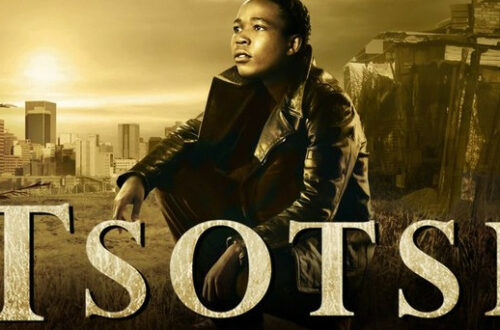
They Called Him Prophet Because His Slips Kept Winning, Until They Didn’t
For a year and a half, he was the guy everyone sent their slips to before confirming. He didn’t ask for that job, it just happened. First, it was his cousin in Ga-Rankuwa who noticed his tickets were always close. Then it was a neighbour, then a colleague, then strangers in WhatsApp groups who started calling him “the Prophet.” Not because he prayed over his bets, though he did sometimes, but because his numbers made sense in a way others couldn’t explain. His odds lined up. His choices landed. His slips paid.
His name is Vusi. He’s 32 now, but when the winning streak started, he’d just left his job at the glass depot. Said he wanted to try something different, something digital. People assumed he had a plan. He didn’t. What he had was a cracked Android phone, an understanding of European football fixtures that bordered on obsession, and enough data to stay online just long enough to chase odds before they shifted. It wasn’t magic. It was work.
He would sit in the back room of his cousin’s house with two notebooks and a flask of tea, writing out team stats, weather patterns, injury updates, and player moods pulled from obscure Twitter accounts. He believed in rhythm. He didn’t just bet on teams, he bet on emotion, on streaks, on things that didn’t always show in the numbers but whispered in the patterns. He called it “feeling the fixture.” Most just called it luck. Either way, it worked.
People came to him the way they go to pastors or mechanics, urgent, full of hope, half-convinced. They would send him voice notes, “My guy, what do you think of this one?” or “Is it safe to go over 2.5 here?” He responded in cryptic lines. “Not today, the striker’s distracted.” Or “Safe bet, but don’t be greedy.” His reputation grew with every weekend. Screenshots of his slips started circulating in betting groups. His name was never attached, just the nickname, The Prophet. Even people who didn’t know him would reference him. “This is a Prophet pick,” they’d say when a ticket felt unusually calm and sure.
It made him a bit of money, but not in the way people think. He didn’t charge for tips. He believed that was bad luck. What he got was loyalty. Recharge vouchers, plates of food, sometimes a clean haircut on credit. And every so often, someone would send him a little cut after a big win, R150 here, R300 there. Enough to keep him going, enough to keep him focused. He didn’t live large, but he was respected. That meant more to him.
Then came the bad run.
It didn’t start with a mistake. It started with the games shifting. Coaches changing tactics. Players burning out. The feeling he once trusted began to stutter. Slips that used to land missed by a goal. Underdogs stopped playing like underdogs. Weather turned mid-match. Referees gave soft penalties. One week he lost three slips. The next, five. By the third bad weekend, people started doubting.
 At first, it was quiet. They stopped asking. Stopped sharing. No insults. Just silence. He felt it. It wasn’t just the losses, it was the weight of not being the guy anymore. The Prophet image didn’t allow for failure. People hadn’t followed him for his thoughts. They followed him because he won. Without that, he was just another guy with opinions and no payslip.
At first, it was quiet. They stopped asking. Stopped sharing. No insults. Just silence. He felt it. It wasn’t just the losses, it was the weight of not being the guy anymore. The Prophet image didn’t allow for failure. People hadn’t followed him for his thoughts. They followed him because he won. Without that, he was just another guy with opinions and no payslip.
He kept trying. Tried new systems. Read more forums. Switched to different leagues. But his rhythm was gone. His confidence shook. He second-guessed the instincts that had once made him special. One Sunday, he posted a slip in a Telegram group and someone replied with, “Not this guy again.” That stung. He didn’t reply. Just watched the match alone, in a dark room, knowing that even if it landed, the shine was already gone.
Eventually, he stopped sharing. Still bet, but kept it quiet. The slips were smaller now, the confidence more muted. When he won, he didn’t post screenshots. When he lost, he just breathed through it. The Prophet era was over, and he was the only one who hadn’t fully accepted it.
There’s a particular kind of loneliness that comes from being believed in too much. When people trust you for something they don’t understand, they don’t forgive you when it stops working. They forget you were guessing too. Educated guesses, yes, but guesses nonetheless. Vusi knows this now. He’s not bitter, just quieter. He plays for himself again. Still keeps a notebook, though the handwriting’s messier. Still believes in rhythm, though he no longer claims to hear it as clearly.
Sometimes someone still messages him. Usually someone from the old circle. They ask for one slip. Just a small one. Just something to hold onto. He gives it if he feels good about it. But he always says the same thing now, “Don’t follow me. Follow the game.” He’s learned how fragile belief is, how easily it lifts you, and how quickly it vanishes.
He doesn’t want the title back. The Prophet wasn’t real. It was a mask people needed at the time, and he wore it because it helped them believe in something, and maybe helped him believe in himself too. But now, he prefers the quiet. The way the odds look when no one’s watching. The way a good pick feels when it’s just yours, not a performance.
He still plays. Still loses. Still wins sometimes. Still wakes up early to read line-ups. But now, when he places a bet, it’s not a sermon. It’s not a prophecy. It’s just a man taking a chance, alone, like everyone else.




